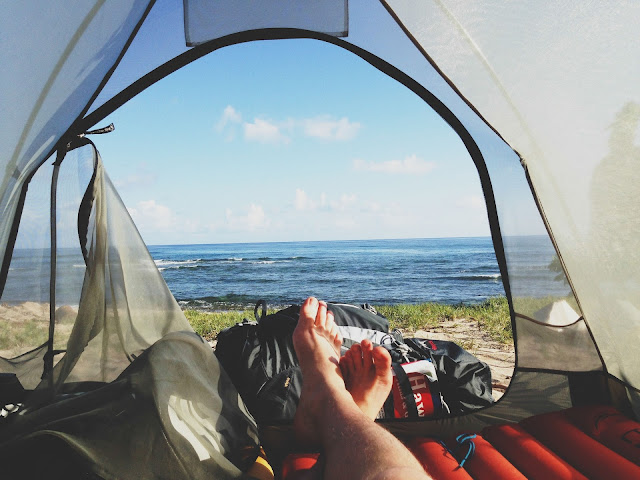4x4 Buyers Guide – 4WD Lighting
For some 4WD
owners, buying aftermarket lighting is a high priority
especially when traveling through the outback at night. Not only do they help
drivers see further down the road, but they also assist them in maintaining
concentration given that poor visibility strains the eyes and drains energy
levels. Not only will they have a better reaction time when dodging kamikaze
kangaroos on the highway, but 4WD lighting can also be used to assist drivers
when changing a flat tyre in the dark or even when camping.
Installing a
mixture of spotlights and flood lights makes an enormous difference and is an
excellent safety feature that assists millions of 4WD owners around the world.
With such high demand for 4WD lighting, there are naturally many products on
the market so being aware of how to best equip your 4x4 with adequate lighting
isn’t straightforward. There are numerous factors which should be considered,
such as beam patterns, bulb type, energy efficiency, and installation. To guide
you in the right direction, today we’ll be offering you a simple overview of
4WD lighting.
Types of bulbs
There are three
basic types of bulbs you can buy and each are very different:
·
LED – The most current bulb
which is becoming very popular considering they use only 10% of the energy of
halogen bulbs. They’re compact, durable, long lasting (expected lifespan is
roughly 50,000 hours) and are available in different colours and shapes. The
downside is that they’re more expensive than Halogen and HID bulbs.
·
Halogen – The most common kind of
bulb because they're cheap and accessible, however they don't produce as much
light as HIG or LED. Furthermore, they're also the least energy efficient and
do not provide ideal visibility. Their projected lifespan is around 1,000
hours.
·
High-Intensity
Discharge (HID)
– Offers the best illuminating ability and can often shine twice as far as LED
lights. They are highly recommended for those who travel on the highway at
night but are known to have dirty lenses which can generate glare. Their
anticipated lifespan is somewhere around 2,000 hours.
Light pattern
Along with
various kinds of bulbs, there are also four different types of light beam
patterns available:
·
Spotlights – While these lights
travel a long distance in front of your 4WD, they have a more focused beam of
light. Spotlights are common because they brightly illuminate a small area with
a pencil beam which delivers better visibility to objects in the distance.
·
Driving
lights
– Even though they're not as bright as spotlights, driving lights essentially
complements your headlights by lighting an area further and wider than your
headlights ability. Excellent for highway and off-road night driving for those
wanting increased visibility.
·
Flood
lights
– Although they don't radiate very far in front of your vehicle, the beam of
flood lights can vary anywhere between 40 and 120 degrees and brighten a very
wide area within a short distance.
·
Fog
lights
– Are designed to emit light onto the pathway in front of your 4x4 without
being affected by fog, rain, or dust particles. Fog lights are commonly mounted
below your headlights and are used together with your primary lights for better
visibility.
Most 4WD owners
who want lighting for safety purposes will have a mixture of spotlights and
flood lights to maximise their visibility.
Construction
There's several
factors which should be considered when acquiring lighting for your 4WD. To
start with, you don't want to buy very heavy lights which puts a lot of stress
on the bolts and fixtures holding it in place, particularly when driving on
rugged and corrugated gravel roads. While lighter is typically better, you
should never sacrifice strength for weight as the lights need to be able to
survive constant movement. The light bolts, pins, and brackets also need to be
stable and well-constructed.
On top of that,
any 4WD lighting you purchase should be waterproof not only to keep rain out
when travelling at 110kph, but also to avoid any red outback dust from
obstructing the clarity of your lens. Waterproofing is also vital if you want
to cross any rivers and have your lights submersed. Furthermore, modern lenses
are usually manufactured from specialised glass or lexan so if you notice any
lightweight plastic lenses then you know they are low-quality.
Installation
Even though
most 4WD lighting are fairly easy to install for those accustomed to handywork,
some areas of your vehicle are more challenging to install lighting than
others. TJM Australia have a series of different
4WD lighting which their specialist staff can install in their fully equipped
workshop. For any additional information about 4WD lighting or installation,
simply give their staff a call on 07 3865 9999.



I'm Абрам Александр a businessman who was able to revive his dying lumbering business through the help of a God sent lender known as Benjamin Lee the Loan Consultant. Am resident at Yekaterinburg Екатеринбург. Well are you trying to start a business, settle your debt, expand your existing one, need money to purchase supplies. Have you been having problem trying to secure a Good Credit Facility, I want you to know that Mr Benjamin will see you through. Is the right place for you to resolve all your financial problem because am a living testimony and i can't just keep this to myself when others are looking for a way to be financially lifted.. I want you all to contact this God sent lender using the details as stated in other to be a partaker of this great opportunity Email: lfdsloans@outlook.com Or WhatsApp/Text +1-989-394-3740.
ReplyDelete